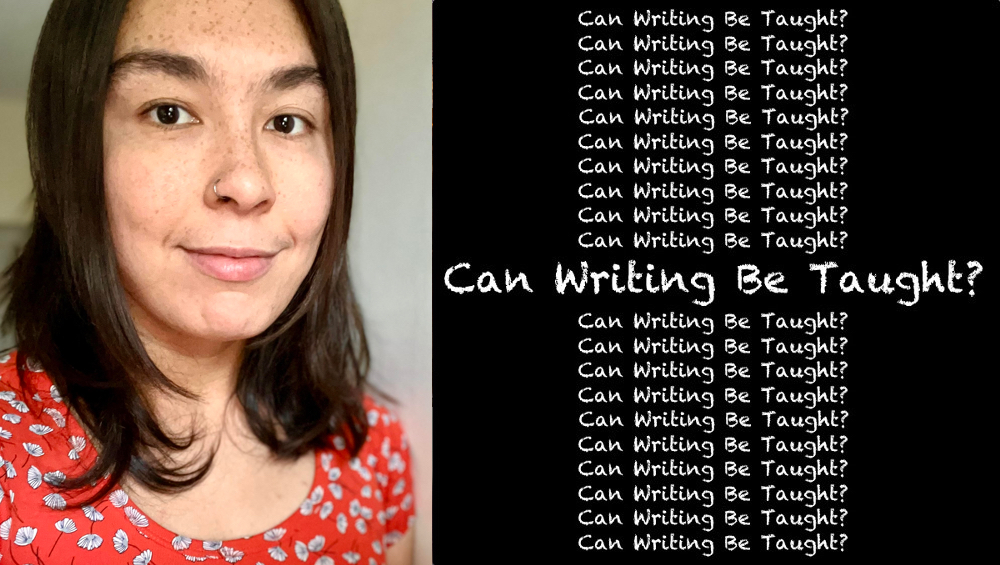interviews
Jana Casale Says You Don’t Have to Kill ALL Your Darlings
The author of "The Girl Who Never Read Noam Chomsky" answers our questions about teaching writing

In our series “Can Writing Be Taught?” we partner with Catapult to ask their course instructors all our burning questions about the process of teaching writing. This time, we’re talking to Jana Casale, author of The Girl Who Never Read Noam Chomsky (which is a novel, but also coincidentally the title of my memoir). Jana’s upcoming six-week workshop focuses on capturing everyday life in fiction—and using your own everyday life as the inspiration for your work. Catapult writes: “Whether you’re looking to write a novel as subtly effective as Woolf’s Mrs. Dalloway, or you’re hoping to get the most out of the quieter moments of your Game of Thrones-esque epic, this class will give you a greater understanding of how depth and minutiae can be threaded together to form beautiful and meaningful prose.”
What’s the best thing you’ve ever gotten out of a writing class or workshop as a student?
Learning to edit your own work is the most important skill any writer can get out of workshopping.
Learning to edit your own work is the number one most important skill any writer can get out of workshopping. It is such a hard skill to learn and is so vital to doing good work. For me I think I was so much better equipped to write a novel more quickly and effectively having been a student in so many workshops than I would have been if I hadn’t had the opportunity.
What’s the worst thing you’ve ever gotten out of a writing class or workshop as a student?
I think unfortunately badly run workshops can damage your ego and really kill the joy in writing. At the end of the day absolutely all criticism of fiction is subjective, and a properly run workshop should have that as its starting point. A workshop should feel like a positive, collaborative experience that brings your work to the next level rather than be something that tears you down and makes you feel like you want to quit writing and get a law degree.
What is the lesson or piece of writing advice you return to most as an instructor?
The more you write the better at writing you will get.
Does everyone “have a novel in them”?
I think if that means that everyone has a great story to tell there’s truth to that, but I think a novel is more than just a great story.
Would you ever encourage a student to give up writing? Under what circumstances?
I don’t think anyone needs to be encouraged to give up writing because writing is hard enough of and in itself.
What’s more valuable in a workshop, praise or criticism?
I think they go hand in hand. If I feel you’re on my team because you value my work, your opinion will matter to me a lot more than if I feel you dislike my work, and I have to defend it to you for you to even see the inherent value of it.
Should students write with publication in mind? Why or why not?
There is such a thing as over-editing.
It depends on what their goals are. If their goal is to turn this into a profession then yes, but if their goal is to just enjoy writing as a hobby then no.
In one or two sentences, what’s your opinion of these writing maxims?
- Kill your darlings: Overrated. There is such a thing as over-editing.
- Show don’t tell: Another overrated saying. Sometimes telling is faster and more efficient. We all have things to do with our time.
- Write what you know: This is good advice in the right context, but I would say don’t forget to bring a sense of wonder to your work. I think good fiction is about discovery and asking questions that none of us have the answers to.
- Character is plot: I’ve never heard this before, but I would say character is not plot.
What’s the best hobby for writers?
Something that has nothing, absolutely nothing, to do with books (we all need a break sometimes).
What’s the best workshop snack?
When I was a grad student at Oxford they’d actually give us tea breaks where we’d have biscuits. Very British and very lovely.








